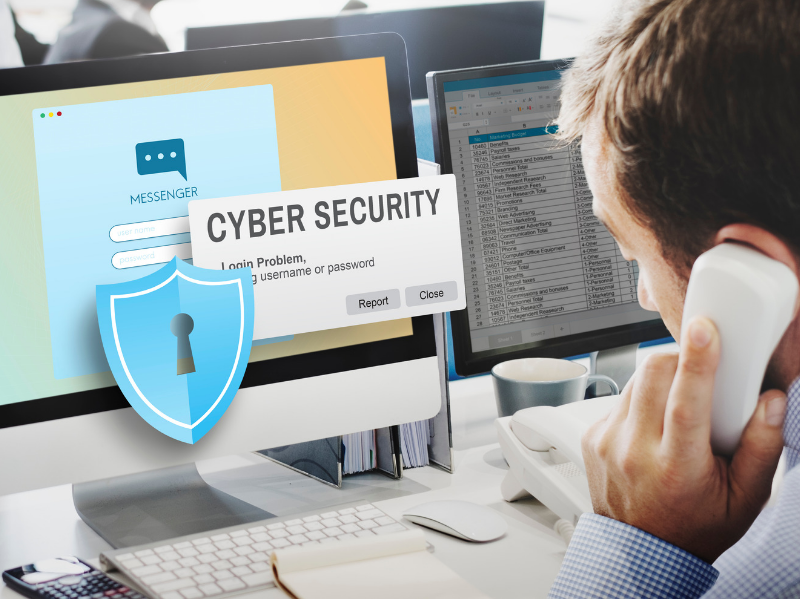Virtually every entrepreneur and business executive agrees that cybersecurity is one of the most formidable challenges facing companies today. But while large multinational corporations can afford to spend tens of millions of dollars each year firming up their cyber defenses, the same cannot be said for small businesses.
Small companies have tight budgets and just one unexpected expense can disrupt their cashflows seriously enough to endanger the very existence of the organization. Unfortunately for the small business owner, hackers are no respecter of organization size. Small companies are at risk of cyber-attack just like large companies are.
Fortunately, there are simple and affordable techniques small businesses could apply to keep their data, devices, and networks safer.
Cybersecurity Tips for Small Business

1. Employee Training
In large organizations, cybersecurity experts are hired with a specific mandate of ensuring the company’s information is always safe. Small businesses have no luxury of hiring such niche specialists. Most cannot afford to contract an employee whose one and only task is cybersecurity.
One way to mitigate against this is to spread IT security responsibilities to all employees. You can do this by ensuring your workers are regularly trained on security policy, procedure and best practice. This includes good password management, document handling, data storage and the management of mobile devices.
2. Antivirus
Proactive security is better than reactive security. This is especially so for small organizations that can ill afford the cost of recovery from a major breach. An antivirus is perhaps the single most important tool in protecting you from attack. It keeps you safe from malware and ensures your equipment, operating systems, web browsers, and enterprise applications remain clean.
Make sure your antivirus is always up-to-date. Enable automatic updates so that new virus definitions are downloaded and applied whenever they become available.
3. Have a Mobile Use Policy
The world of computing today is starkly different from what it was just 10 years. Desktops and laptops are giving way to smartphones and tablets. Perhaps nothing demonstrates this transition better than the announcement in 2016 that there are now more people accessing the internet via mobile than through desktop.
Nevertheless, the opportunity of mobile comes with new threats. The danger from mobile devices is more pronounced for small businesses since they are the ones most likely to have a BYOD (bring your own device) policy. BYOD, in turn, leads to a higher concentration of mobile devices in the workplace compared to larger organizations.
Make sure any mobile device authorized to access the company’s network or data is password protected and the information on it is encrypted. That way, if it falls in the wrong hands, the data will remain inaccessible.
4. Backup Important Data
Small businesses don’t have a long-established reputation to fall back on when things do go wrong. Any moderate to severe incident could see their customers trooping to the more established market players. If a large organization loses its most important data, it can still ride on its reputation and brand to gradually regain its footing. Small businesses can wind up for good if they lose their data.
Ergo, keep backups of all your most important data. That’s not just what is in your enterprise applications such as the ERP or CRM but also spreadsheets, word processor files, and human resources documents. If your backup process is manual, make sure you backup at least once a week. If you can automate the process, backup critical data at least once a day.
5. Access Control
Each employee should only have access to information they need to perform their work. This principle of access control is known as least privilege. For example, workers tasked with handling the payroll don’t need access to the organization’s detailed sales and marketing plans.
Create an account for each employee and prohibit the sharing of passwords. Any system action should be traceable to an individual. Perform an IT security audit at least once a year during which you review user account permissions to confirm the rights are still valid.You don’t have to break the bank to have good cybersecurity controls. Following these tips can make it that much harder for hackers to penetrate your systems.
Leave a Reply